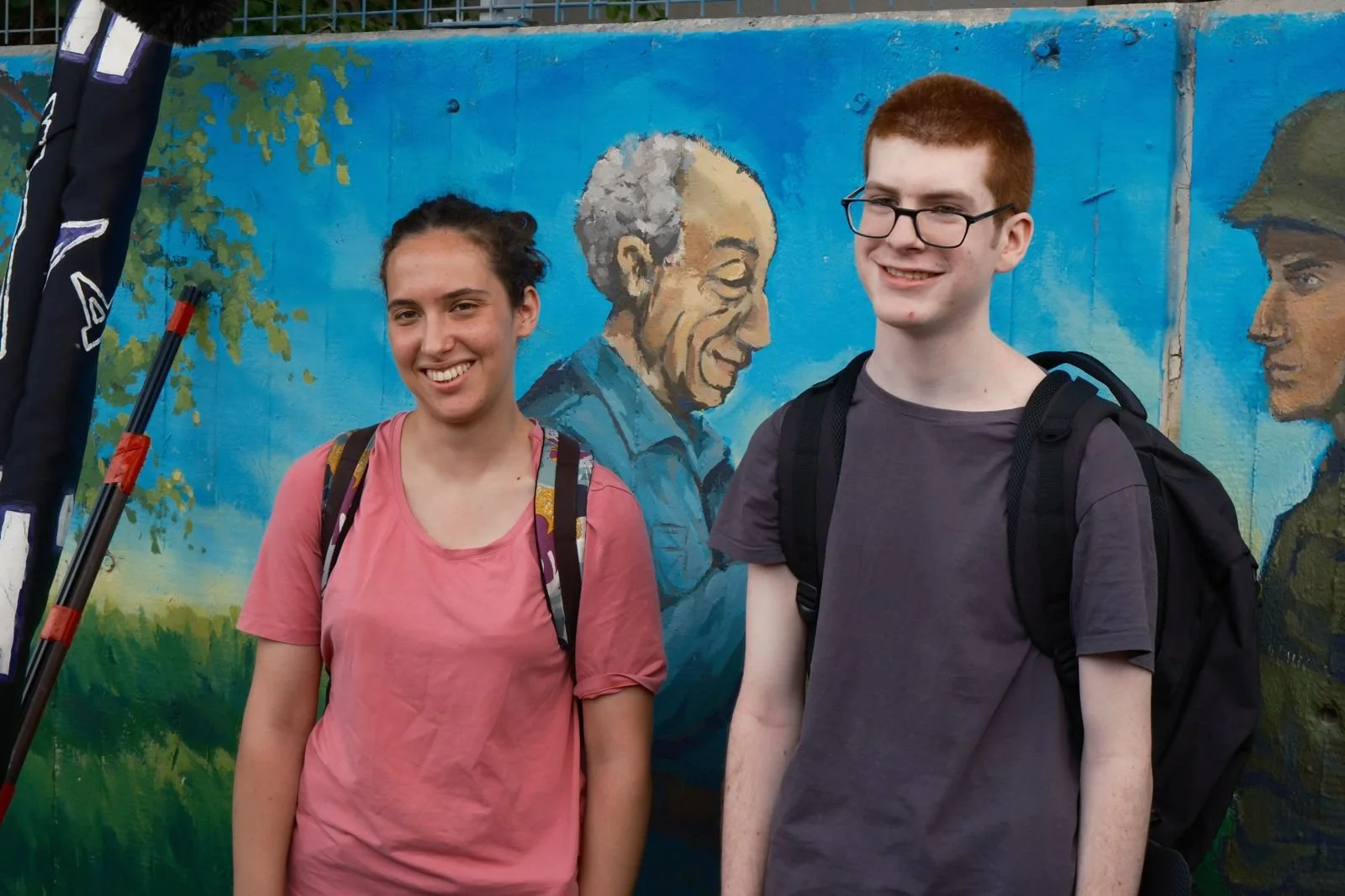Mattan here. In 2017 I spent 110 days in a military prison for refusing to join the Israeli occupation forces. Today, I support refusers as part of the team at Refuser Solidarity Network. We need a long-term movement to put a stop to the ongoing genocide and forced displacement of Palestinian in Gaza, the West Bank and within Israeli territory. To build a sustainable movement against war and occupation, we also need to support people on another front as they face fines, jail time, and social exclusion: emotionally. We are proud to be backing a psychosocial support program for refusers with support from clinical therapists.. We are counting on you to help us fund this vital program, so that every potential refuser knows they have a support system waiting for them. Consider donating today so we can continue to fund this work and build a durable movement. We are in this for the long haul. That's why we encourage those who can to open a recurring donation plan.
We, refusers, are often quiet about the social and emotional consequences of refusing to serve the army. As a public-facing activist, I forced myself to put on a brave face and not show the impact prison had on me. I wanted the public to focus on my message: a stop to the endless occupation. I also felt guilty to admit I was struggling because I felt that I could not complain while Palestinians suffer horrendous abuses and crimes against humanity in Israeli prisons and under the occupation at large. But today, I understand that this perspective is unproductive, for myself and for the anti-war movement, as it prohibits self-care, causes burnout, and makes resistance unsustainable. Mental health is not a luxury, but an essential part of resistance and social change.
As a result of my refusal many years ago, I was facing the brunt of social exclusion at the hands of a thoroughly militarised Israeli society. I was forced out of my youth movement and the commune I was living. I lost friends who did not understand and had heated discussions with family members. Military prison, of course, was in itself difficult to bear. In prison I was alone, forced to follow military procedures, and fellow inmates were often violent toward me. The hardest part was that I didn't know when I would be released. I remember a time when I started to feel like I could not handle it anymore. I was conflicted because while I was hurting, It was my own decision to be there by publicly refusing. Until today I carry with me scars from my time in prison.There was no support system for activists at the time. I felt so alone.
Back then I thought that I was the only refuser who struggled. Later on, I realized my struggles were not mine – they are shared by all refusers. In conversations with younger refusers, we decided to form a support circle. We offer an emotional support system through trained therapists that build a support group for past, present and future refusers, where bravery and heroism can be put aside. Our support circle equips refusers with a necessary infrastructure of support and care: they receive emotional and social support, learn coping strategies and hear about each other's experiences. We help refusers to transform their experience from emotional struggles to sources of empowerment. We change the culture of the movement from toxic heroism to self and community-care, and compassion. We also plan to use the knowledge garnered from our support group to publish a self-care handbook with emotional and practical advice for future refusers.
When I refused, our movement did not yet offer this type of crucial support. We need potential refusers to know that if they refuse, we will be there for them. Our psychosocial support forum is only possible because of you, and your support.
We ask all our friends abroad to make a donation today to make this program possible for the long-haul. Only with these kinds of long-term support structures can we give our movement longevity If we want to build long-term opposition to the military-industrial complex and demilitarize the world over, we need structures of care.



